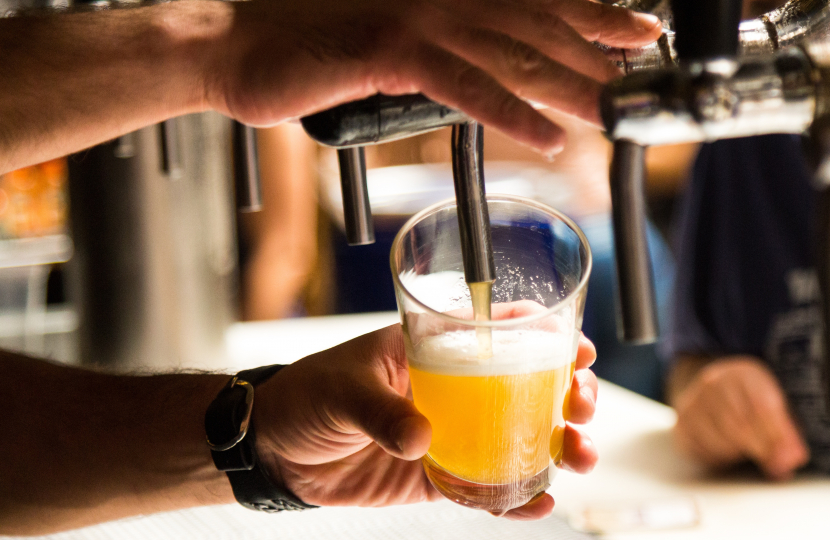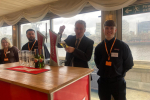
My latest article for the Herald and Post...
There’s something magical about the trinity of sunshine, England doing well in a football tournament and the Great British pub. As we cheered on the team’s performance, publicans cheered this mini boost in trade. Though sad we didn’t get the fairy tale ending, we all got a lift from the Lionesses’ achievement.
Sadly for pubs, a quadrennial football tournament is not enough, and the business environment can be tough. According to the British Beer and Pub Association, there were over 60,000 pubs in the UK in 2000, now just under 40,000.
Many moons ago, before I took my oath of allegiance to the Crown in Parliament, I was in the pub business, so this statistic is additionally sobering.
In the trade people would say “the pub is the hub”. It’s not just that this sector is vital for employment and social interaction, it supports community activity from darts leagues to charity fundraising. This most British of institutions is also a central part of others’ image of our country, and an important asset to tourism.
For those of us living in the countryside, the pub is sometimes the only space where the community can come together. It’s a particularly important place for many living on their own, where a chat over a pint at the bar can be a social lifeline.
Over the last few decades pubs have been transformed. A large segment that has been much depleted is the overwhelmingly male several-pints-a-night customer. But in his place is a more diverse customer base, with more families, and above all more food.
There have been big changes – many of them for the better, but still requiring business adaptation that not all have been able to make.
The smoking ban seems these days like a lifetime ago, and few would advocate going back. The pub atmosphere – literally and metaphorically – was transformed. But it was also difficult for a lot of ‘wet-led’ (i.e. little or no food) pubs without outdoor space, and a more ‘traditional’ clientele.
The pandemic was really tough, even with the government help put on. Some pubs closed at the start of lockdown, never to open again. The ubiquity of coffee shops and casual dining restaurant brands has given us different options when we want to catch up with friends or family.
But many pubs nowadays are better described as pub-restaurants, and when we talk about the growth of food in pubs, clearly it isn’t the same food! Not just in ‘gastropubs’, the general range has got a lot broader.
Notwithstanding all the change, at the heart of the pub still is… a pint. A hand-pulled cask ale is still a unique selling proposition for British pubs. Or the (actually much bigger selling) cold draught of lager.
The price of a pint has risen substantially over the last quarter-century. But a long-standing issue for publicans has been the wide gap between bar prices and supermarket prices.
It is here where the Treasury’s new approach will help even out the playing field somewhat. These are changes to the duty system made possible by the UK’s departure from the EU and the guarantees set out in the Windsor Framework.
The ‘Brexit Pubs Guarantee’ came into effect at the start of this month. The government has pledged that the duty pubs and bars pay on drinks poured from draught will always be less than retailers.
It also shakes up the duty for other drinks, a long overdue change, and much called for by the drinks industry. Drinks will be taxed by strength, so the higher the alcohol content, the higher the duty. This is great news for those who prefer low alcohol drinks, which is an ever growing number of people.
And for small businesses and start-ups, similar to the micro and nano breweries we have here in East Hampshire, a tax break is now available to encourage more innovation in the development of homegrown drinks.
I know that duty only makes up a part of the cost of a pint: the main pressures coming from within the supply chain, such as the fluctuating cost of barley and the cost of importing crops, e.g. hops, that we used to grow in vast quantities here; and there are labour market strains in pubs as elsewhere.
But there is hope that this change will bring some much needed relief for publicans. They are, after all, the keepers of a very special part of our heritage. We have to do all we can to ensure that the Great British pub remains part of our future too.



